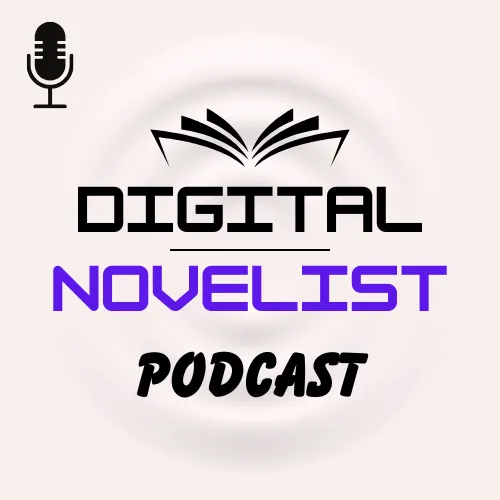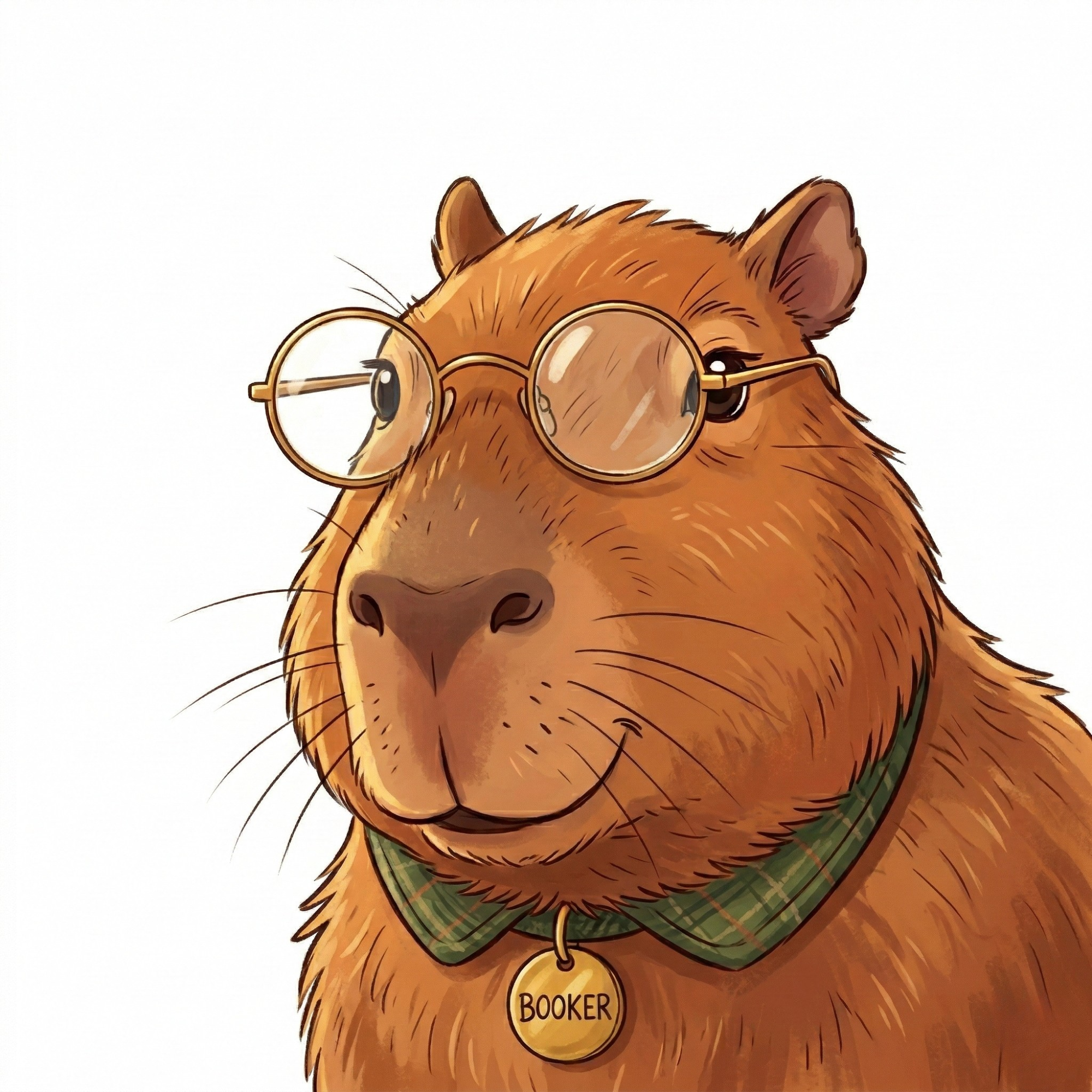Transcript
I’m a novelist—unfortunately, in 2025 that means that I have to do a lot of other things besides just writing novels.
There’s this YouTuber that my wife watches; he’s pretty funny, he goes by the name of Rudy, and like a lot of YouTubers these days you see him mostly on Shorts—even if the Shorts are sometimes like three minutes long. But my wife watches a lot of YouTube stuff that I just can’t get into; it’s a specific type of humor that, you know, you need cultural context to really enjoy it. I don’t enjoy it as much as she does sometimes, but this particular YouTuber—anytime she puts him on, I stop. I usually wash dishes right after; that’s when my wife typically watches YouTube, after we’ve eaten dinner. She’s just kind of relaxing; I’m washing dishes. But I stop mid‑dish every time this guy comes out with a video, which—like a lot of YouTubers these days—is pretty much daily, at least during the week.
So this guy’s funny. He’s a comedy channel. There’s this brand of humor that’s pretty popular on YouTube: it’s basically when a person does their version of a one‑man, one‑woman show. They play different characters and, yeah, it’s funny to see them kind of change roles. They’re basically acting, but it’s not meant to be a serious dramatic performance—it’s meant to be comedic most of the time.
And this guy is like the king of it. His timing is so good, his characters are hilarious and super differentiated, and yeah, he’s just a really funny guy. Rudy—look him up. He does this thing called “Arab Dad,” where he doesn’t dress up: it’s like this stereotypical Arab Dad. I don’t know any Arab dads, so I don’t know how true to form it is, but it’s funny as hell.
The other night he put up a video where he said, “Somebody asked me to be in their music video,” and then he just cut to this—I don’t know—30‑second clip of him shredding on guitar with another person who isn’t a YouTuber (or at least I hadn’t seen him on YouTube). I was like, “This guy has figured it out.” He’s probably one of the few YouTubers I’ve seen where, if I told someone I’d had a conversation with him, he’d know exactly who I was and we’d be able to relate to so many things.
Because his primary goal—you can tell—is to get people to listen to his music. He’s a musician, and he’s done several videos that aren’t just the Skip‑style bits. He’ll poke fun—“Oh, this is like Arab drum-and-bass music,” or “This is like a country song”—and he plays guitar, he can obviously sing, he can obviously produce. You can tell he was a musician first. He must have thought, “How the hell am I gonna get people to listen to my music? Or do you even care that I’m a musician?” Well, there’s this thing called YouTube Shorts, and the easiest, fastest way to get watches is to have a comedy channel. I think that is probably the fastest way.
It’s something I’ve thought about too, but I’m not into writing comedy. I like comedic beats, but I don’t like writing comedy. Well, I actually have never really tried it, but I’m just not interested in skits and everything the way they do it on YouTube—even though I have no problem being on camera.
The point is, Rudy is basically taking a roundabout route: most of his videos are comedic, with music videos sprinkled in. But you can tell the music is where his heart is. Circling back to me, it’s the same. I want people to get to my writing, but writing is even less flashy than music. If you’re a good musician, you can tell immediately—I mean, you hear a song and you know. If you’re a good writer, people need to read enough of your work before they realize it. That’s why the literary canon doesn’t really change much: everybody reads the Steinbecks and the Toni Morrisons and more contemporary authors like J.K. Rowling. There are just so many books out there these days that people stick to what’s recommended by friends or book‑talk algorithms.
The point is, it’s hard to break into those rotations. You kind of have to do volume—and of course a certain level of quality. If your stuff is good and you put out enough of it, eventually you’ll get recognized. You just have to keep putting out the volume.
That’s where I’m at. Yesterday I spent probably five hours—close to five hours—working on a poem. I wrote the poem (maybe 30–45 minutes), then the rest of those hours were spent making graphics, making videos, doing audio—basically distribution. When I break that down, I think it’s telling: in 2025, being a creator in any domain takes that ratio. Of the five hours I spent on the poem, one hour was actually writing; the other four were distribution.
I was watching a YouTube video earlier of a guy around my age who’s fed up with it. There are so many writers like him: “I love writing, but all this social media and extra non‑writing stuff is for the birds.” I get it—I empathize—because it’s different when you’re forced into a nine‑to‑five. Today was actually my first day at a nine‑to‑five job since I moved back to the U.S., and it’s bittersweet. I’m happy to go back to something familiar where I just collect a paycheck. I haven’t had a steady job like that since I got out of the military—almost ten years of freelancing and building my business, with only one full‑time teaching job in California.
In entrepreneurship and creative land, it’s never that one‑for‑one exchange. Most of the time, you don’t get much in return: you don’t get feedback, you sure don’t get paid. And I mention all this because, yes, I understand having to do all the extra stuff. If I break it down—one hour writing, four hours distributing—that means only 20 percent of my time is doing what I love; the rest is getting it into a form people can consume.
By the end of the day yesterday, the video I made felt like minimal result for so much work. Part of that was my insistence on doing things a certain way, which made it take longer. But the point is: I’m doing all these “non‑writing” things to get people to the writing, very much like Rudy. A lot of writers can’t stomach that; they don’t want to do it. It’s like musicians: most of them need a nine‑to‑five to finance their art, because you can’t just get paid if you’re an amateur with no distribution. Distribution is the holy grail.
So many writers outsource distribution to platforms—YouTube, Amazon KDP, Facebook, etc.—but taking charge of your own distribution is hard. It’s tough to build a fan base organically without the algorithm. Yet there’s freedom: you own all the upside. In the last two weeks, two people have joined my seven‑day novel‑writing email course. Each one of those could be a partnership or at least a future customer.
I do recognize it’s still a minimal result for the work, but I’ve shifted my mindset. It’s not just the performance of one thing that defines my worth as a writer; I’m trying to build a body of work across mediums. The writing is the main thing, but all the incidentals—graphics, video, audio—are part of my creative process. When you slow down and enjoy those parts, it’s easier to accept that you have to do them if you want people to reach the main thing.
Probably much like Rudy told himself, “If I want to be a musician, I better be funnier.” So I keep putting out these videos until someone watches. With that said, it’s time for me to work on my poem, because that’s my vehicle for daily practice and improvement.


